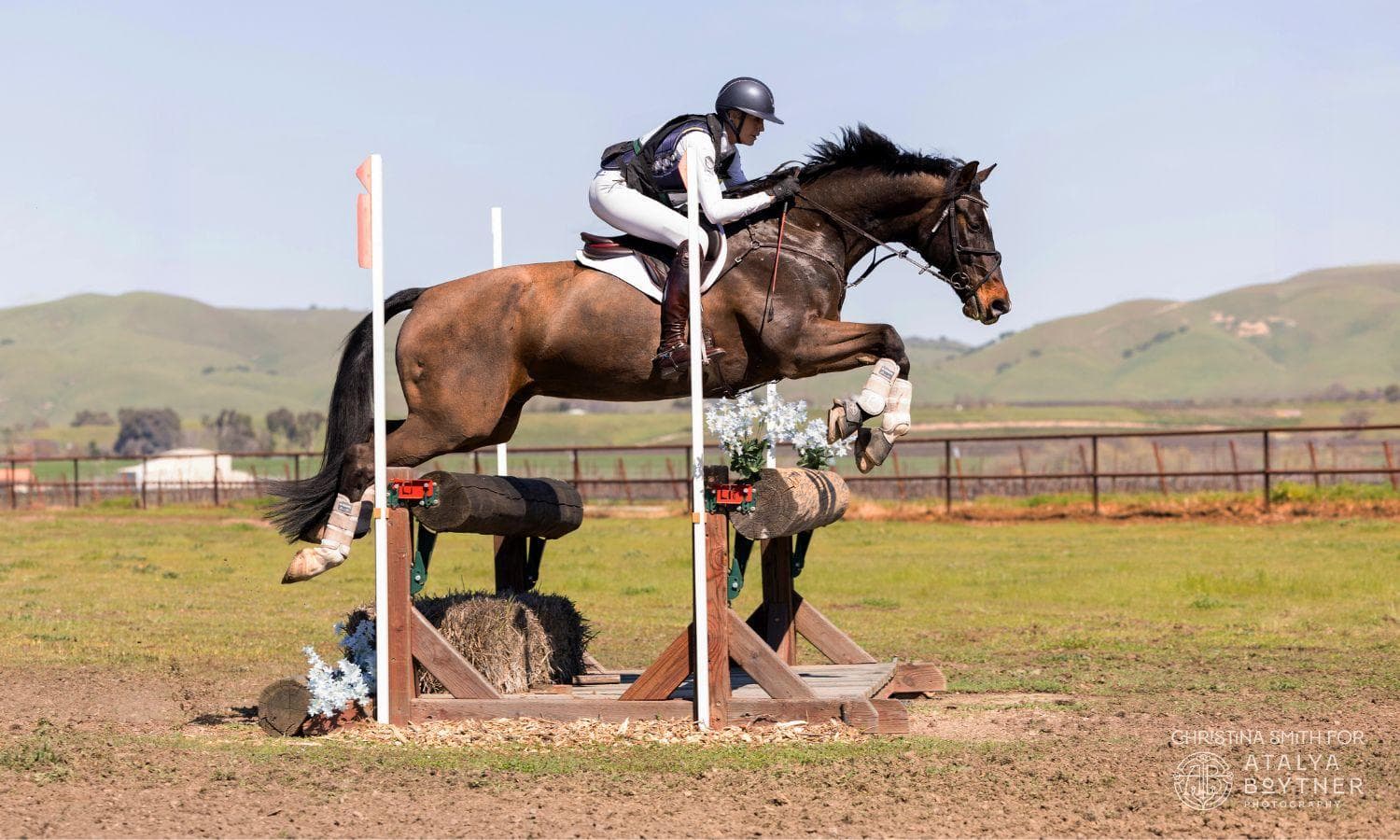Featured Clinician: Andrea Waldo
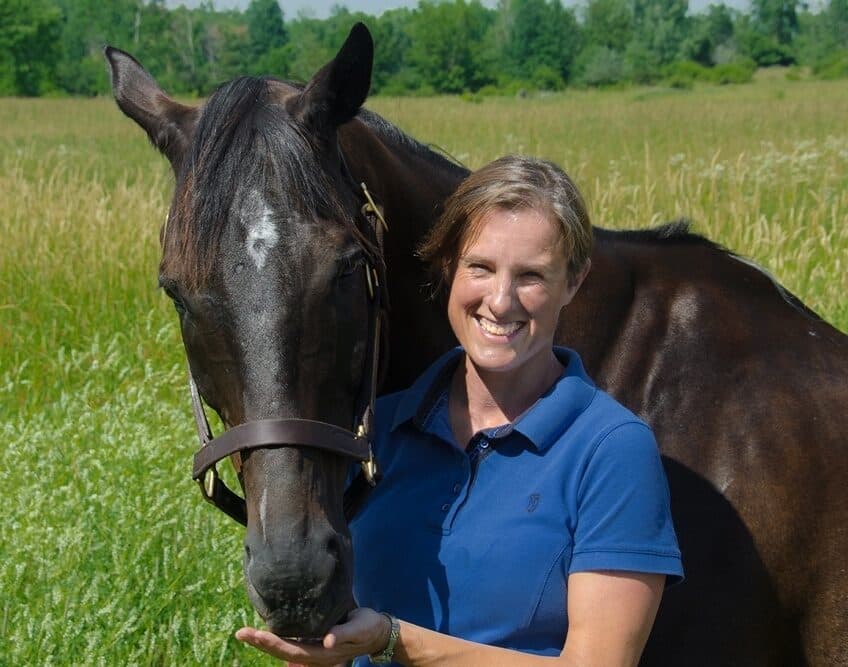
The Featured Clinician article series is provided through a partnership between STRIDER™ and the USEA.
“It’s okay to be really disappointed. All of us had the season mapped out and knew what we wanted to accomplish.”
Andrea Monsarrat Waldo, author of Brain Training for Riders, talked with STRIDER™ to share insight to help riders navigate these unprecedented times, lessons learned along her journey to the Advanced level, and strategies for rider development.
“One of the most important long-term skills we have as horse people is learning to roll with the punches and not get too attached to any particular goal. Your horse may get a hot nail, someone may get tossed off a young horse - anything can happen.”
Equestrians everywhere have had their short-term riding goals involving lessons, competitions, clinics, or even daily rides disrupted by stay-at-home orders and facility closures. No rider is alone in missing out on their next opportunity.
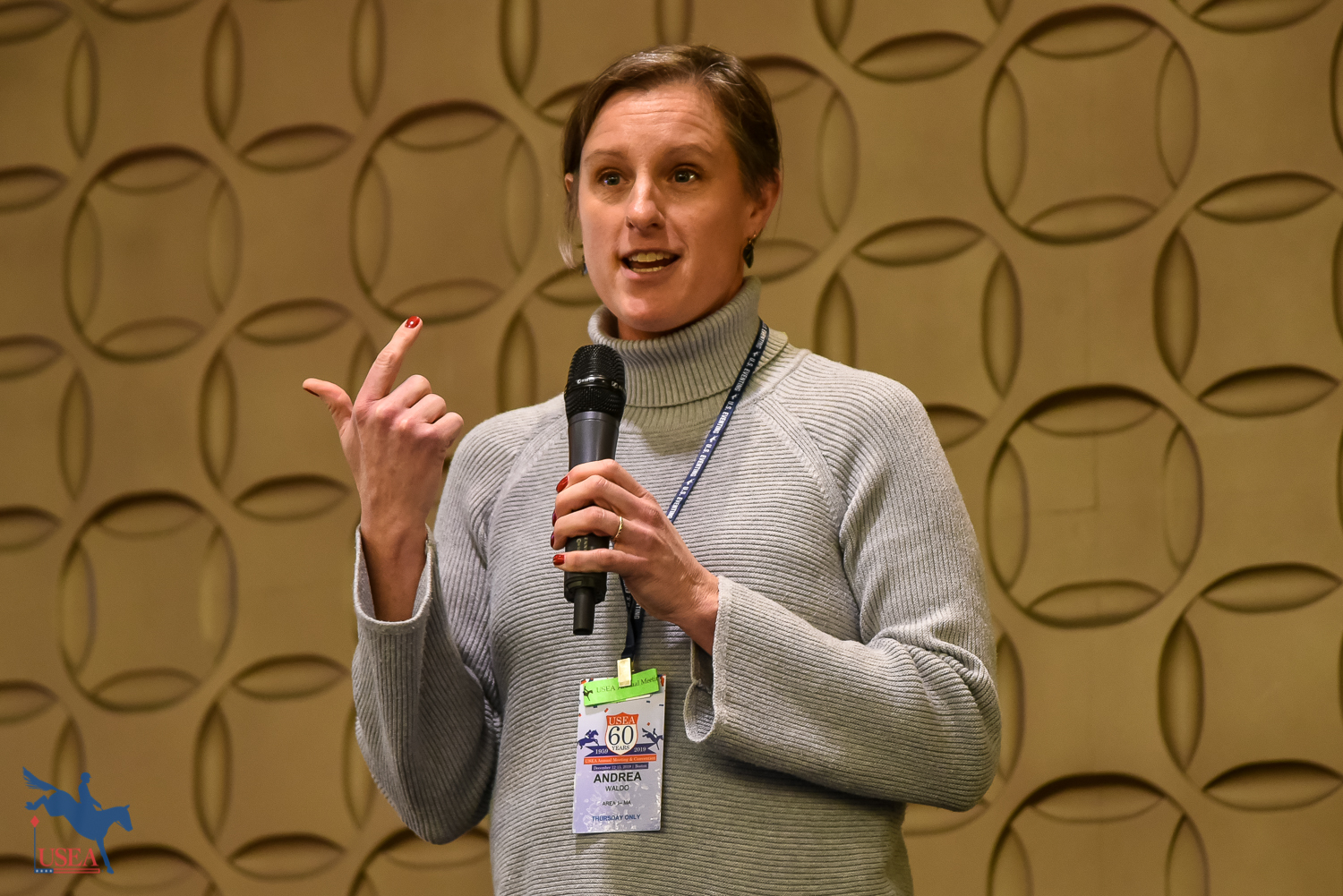
“Usually, you’re trying to stay positive for your friends even when you are the one staying home from the Kentucky Three-Day or the local show, but right now all of us are together in this . . . we’re all really frustrated.”
“Realize that it’s really okay to not be on top of everything every second . . . none of us have been through this before, we have no roadmap or blueprint.”
“If we can have a long-term goal and recognize that we have to take things one day at a time right now that’s very important. Expecting ourselves to be super high functioning in this situation is like expecting our horses to jump a full course two weeks after a bowed tendon.”
Without the prospect of short-term goals, Waldo invites riders to practice being present in riding and training.
“One of the things we all struggle with as riders is staying in the moment, and that’s something you can practice on your horse or not. I remember once I was in a clinic with David O’Connor, and he said, ‘Ride the horse you’re on, not the horse you had two seconds ago.’”
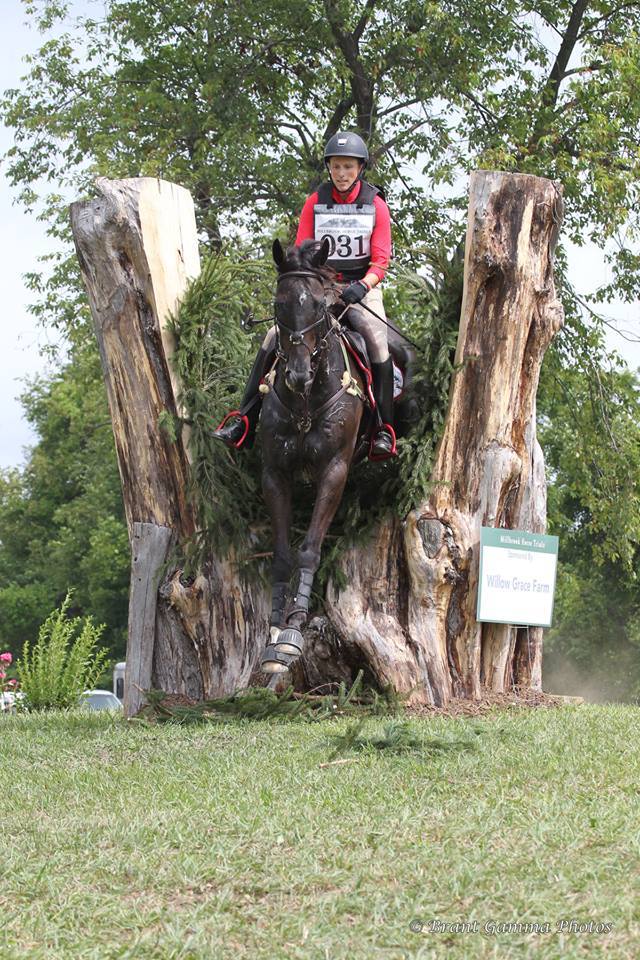
“Every day you can practice keeping your attention in the present moment. When your mind drifts, bring it back. Pay attention to all of your senses. Notice where your brain goes and bring it back without hassling yourself for wandering. That takes you out of the moment.”
“Losing focus is the problem that causes that last rail to fall so often in the show jumping phase. Riders think they have had a clear round with one fence to go, but then stop riding in the moment, lose focus, and drop the last rail.”
“The thing that sets apart riders like Charlotte Dujardin, Phillip Dutton, and Kim Severson is that they are so in the moment. Nothing deflects their focus, they can react exactly to what is happening and won’t be a step behind.”
So many of the struggles riders face can be better understood by taking a closer look at why the brain reacts the way that it does. Waldo draws on her background as a licensed psychotherapist with a focus on trauma recovery to provide equestrians with pathways to success based on neuroscience. Through unmounted workshops, riding clinics, and now webinars, the StressLess Riding Program offers tangible tools for rider development.
“The bigger your toolbox is, the better. Every individual is so different about how they approach their riding and their emotional state. Something that works for one rider may not work for someone else.”
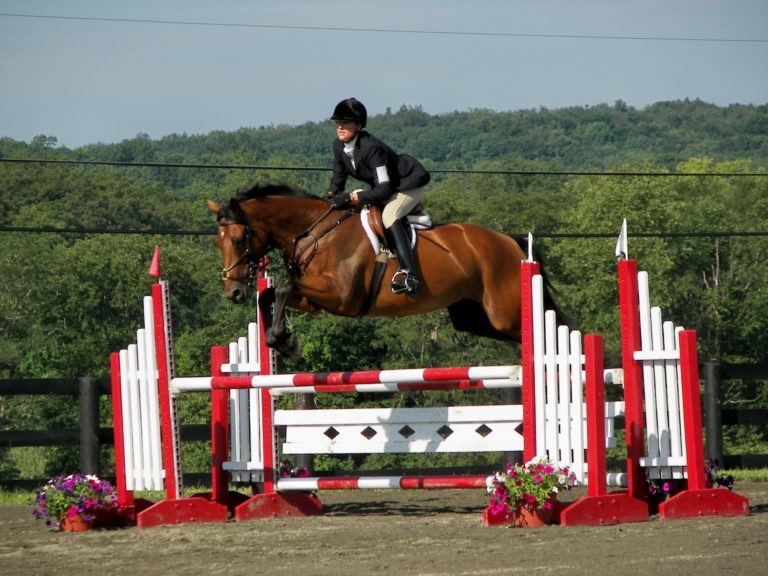
Because riding is such an individual sport, there is a tendency for riders to feel that they are alone in their struggles. Waldo points out that what is so unique about her workshops is the lightbulb moments riders experience when they realize that their peers have encountered the same struggles, stresses, and worries.
“We all walk around thinking everyone else in the warm-up ring looks like an Olympian and we look like we started riding yesterday. People go through that thinking they’re the only one who doesn’t have their act together, but the reality is we’re all feeling that way.”
“The weak spots in our sport appear when we forget that the mistakes are part of it. An important part of it, and that’s true on a neurological level.”
“A long time ago I asked Denny [Emerson], ‘When do you stop feeling like you’re going to puke in the startbox?’ and Denny said, ‘Never. How else would you expect to feel when you go out to do something hard?’”
“It’s important for riders to know that nerves and fear are not a reflection on your level of courage . . . this sport is so hard. It doesn’t stop being hard. Even when you get really good, it’s still very hard.”
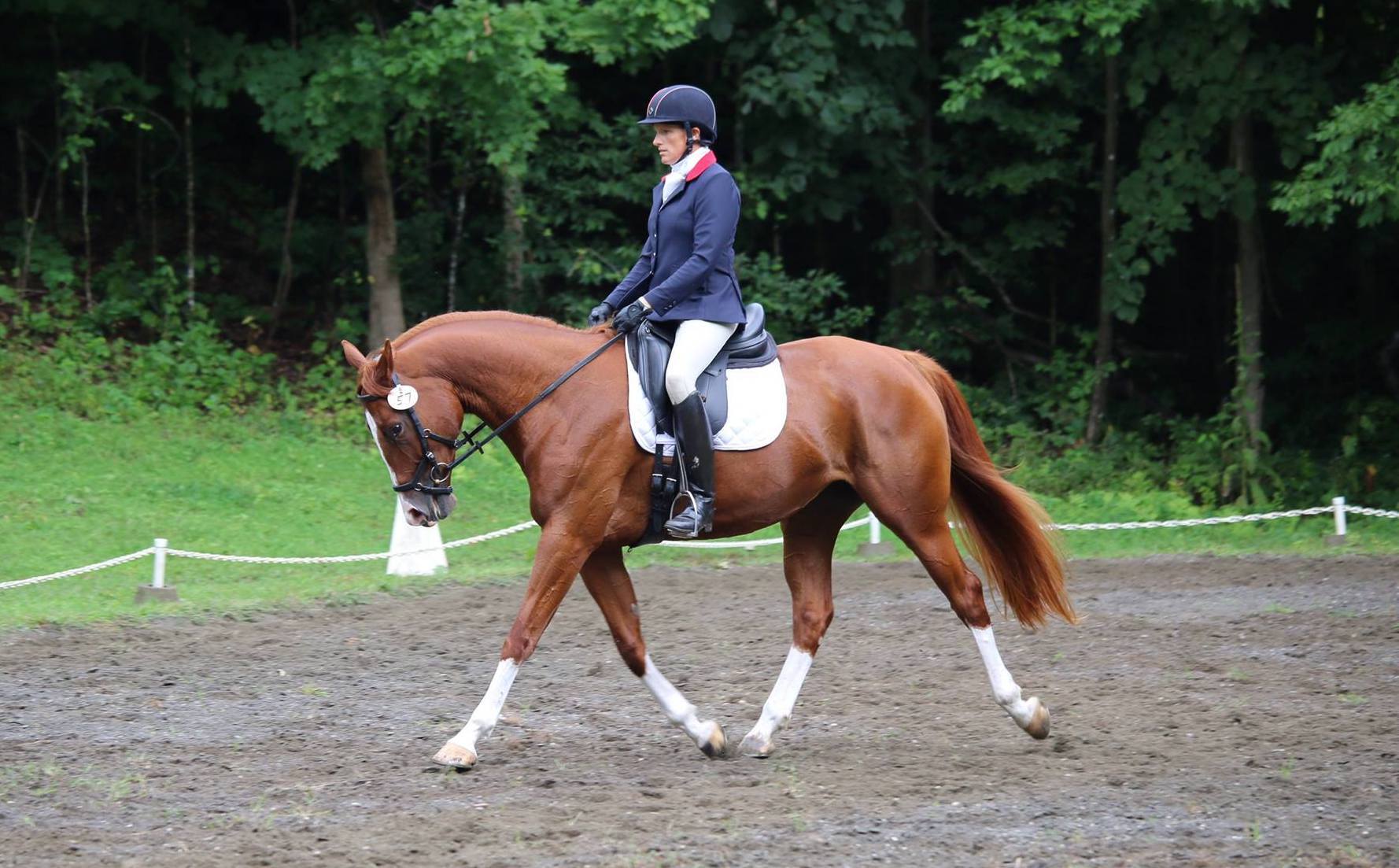
“Every time we think we know what we’re doing some horse throws a curveball at us.”
Recognizing the difficulty of the sport helps to cultivate a uniquely supportive community, one that riders can draw on especially in times of uncertainty.
“People have your back. I would love for every discipline to have the camaraderie that eventing has. We are lucky that way, but we work hard at it.”
As a result of the global pandemic, many in-person opportunities with Andrea Monsarrat Waldo have been postponed for the time being. You can find and register for opportunities to participate in a virtual StressLess Riding Workshop via www.striderpro.com.

For more details about Andrea’s training program at Triple Combination Farm in Vermont, visit www.triplecombinationfarm.com. For more details or to book a StressLess Riding Workshop, visit www.stresslessriding.com. Waldo's book, Brain Training for Riders, can be purchased via Horse & Rider Books at this link. Use the code "STRIDER20" for 20 percent off your purchase!


